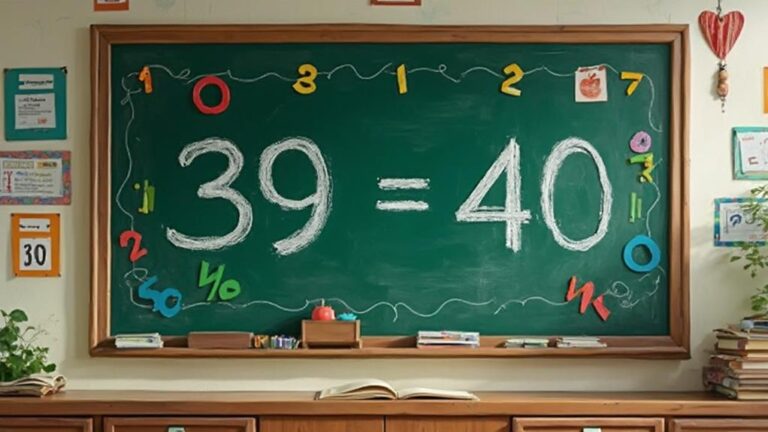When you're managing spell points in your game, you'll find that it offers a strategic layer to your spellcasting. Instead of being confined to spell slots, you can allocate points based on the spell's level, giving you flexibility. However, each class interacts with spell points differently, which can considerably impact your approach to spellcasting efficiency. You'll want to understand how these interactions work to maximize your character's potential. Curious about how to optimize your spellcasting across various classes? Let's explore the intricacies and practical applications that can elevate your gameplay.
Spell Points Overview
Spell points provide spellcasters with a flexible and dynamic alternative to traditional spell slots. Unlike spell slots, which restrict you to a fixed number of spells per level, spell points allow for a more versatile approach to your spellcasting feature. You can cast spells by spending points from your spell point total, offering greater adaptability in various scenarios.
Your spell point total is determined by your class level and casting ability, making it essential to understand how these elements interact. For instance, higher-level spellcasters naturally possess more spell points, enabling them to cast higher-level spells or multiple lower-level spells strategically.
The Spell Point Cost table outlines the specific spell point costs for spells ranging from 1st to 9th level, ensuring clarity on how many points each spell requires.
After a long rest, you regain spent spell points, ensuring you're ready for the next adventure. Unlike traditional spell slots, spell points can't drop below zero, safeguarding against overcasting.
This system enhances your versatility, allowing you to adapt your spellcasting to the needs of the moment. By leveraging spell points, you can optimize your magical resources, making you a more strategic and effective spellcaster.
Spell Point Costs
Understanding spell point costs is crucial for efficiently managing your magical resources. Each spell's point cost varies with its level, making strategic planning fundamental to your spellcasting. For instance, a 1st-level spell costs 10 spell points, while a 9th-level spell requires 55 points. This incremental increase, typically 5 points per spell level, guarantees a balanced expenditure of your spell points.
Cantrips are an indispensable resource since they don't consume any spell points, allowing you to cast them freely. However, higher-level spells demand careful point management. Consider the following:
- 1st-level spell: 10 spell points
- 5th-level spell: 30 spell points
- 7th-level spell: 40 spell points
- 9th-level spell: 55 spell points
Additionally, creating a spell slot of 6th level or higher during a long rest incurs a specific spell point cost, directly tied to the spell's level. This aspect of spellcasting requires you to be judicious with your point total.
Bonus spell points awarded for high ability scores can greatly influence your spellcasting efficiency. These bonus points provide an edge, allowing you to manage and maximize your available spell points effectively.
Mastering the intricacies of spell point costs empowers you to cast spells with precision and foresight.
Spell Points by Level
As you advance in your spellcasting journey, the allocation of spell points by level becomes a vital aspect of your magical prowess. Your total spell points are determined by your caster level and vary among different classes.
For primary spellcasting classes like Bards, Clerics, Druids, Sorcerers, and Wizards, your total spell points match your class level. Meanwhile, hybrid classes such as Paladins and Rangers calculate their spell points using half their class level. Eldritch Knights and Arcane Tricksters follow a similar pattern, but they receive spell points equal to one-third of their class level.
Each spell level has a specific point cost, ranging from 10 points for a 1st-level spell to 50 points for a 9th-level spell. This system requires careful management, as you can only create one spell slot of 6th level or higher per long rest. Understanding the point cost and knowing when to cast higher-level spells are fundamental to maximizing your character's effectiveness.
After a long rest, you regain all spent spell points, allowing you to start fresh for the next challenge. This reset emphasizes strategic planning in your spellcasting, ensuring you're always ready for whatever comes your way.
Class Interactions
Often, the way spell points interact with class features can greatly impact your strategy and gameplay. Your spell points are calculated based on your caster level and spellcasting ability modifier, which means each class has a unique method for determining available spell points. This variability can deeply influence your approach, especially when managing spell point expenditures and spell point costs.
Consider these key class interactions:
- Sorcerers: They can convert sorcery points into spell slots, maintaining flexibility and adapting to various combat situations.
- Multiclass Characters: Each class earns spell points independently, allowing you to effectively manage resources from different spellcasting pools.
- Bards and Wizards: These classes have features that modify spell point costs or allow additional recovery, enhancing your spellcasting capabilities.
- Class Identity: The integration of spell points can affect class balance, particularly for those dependent on traditional spell slots, requiring careful adjustments by the Dungeon Master.
Understanding these interactions not only helps you maximize your spellcasting efficiency but also guarantees that you stay true to your character's class identity.
Practical Applications
Maximizing the utility of spell points involves careful planning and strategic decision-making. Spell points give you the flexibility to cast spells using spell points rather than fixed slots, allowing for dynamic spellcasting. Each spell has a point cost based on its level, so managing these costs is essential. For instance, a 1st-level spell requires 10 points, while a 2nd-level spell needs 15 points, making it important to balance low and high-level spells.
To optimize your spellcasting, keep track of your number of spell points and plan your spells accordingly. Bonus spell points equal to your ability scores or class features can greatly enhance your casting capacity. Make certain to utilize these bonuses to maximize your potential.
After a long rest, you regain all spent spell points, but partial rests can restore points as well. Specifically, 1 hour of rest restores one-third of your maximum points. Consider this when planning your rests to guarantee you're always prepared.
For multiclass characters, managing separate spell point pools for each class is essential. This separation allows you to strategically allocate resources, optimizing each spellcasting feature that uses spell points.
Frequently Asked Questions
What Is the Alternate Rule for Spell Points?
Imagine the flexibility of water flowing through your hands. The alternate rule for spell points revolutionizes spellcasting mechanics, enhancing character optimization and resource management, ensuring game balance, seamless campaign integration, diverse spell selection, and strategic planning across class variations.
How to Use Spell Points?
To use spell points, understand spell point mechanics and strategies. Track your resources, balance high-cost spells, and plan for recovery. Customize your approach to fit your playstyle, considering the advantages and limitations of spell point variations.
How Many Spell Points per Level?
You'll calculate spell points based on class level and modifiers. Spell points distribution varies, with wizards and sorcerers differing. After a long rest, spell points recovery occurs. Understand spell points mechanics for strategic advantages, limitations, and adjustments.
How Many Spell Points Does a Druid Have?
Imagine your druid as a wellspring of magic. You manage spell points through druid spellcasting mechanics. At 20th level, you have 10 points, influenced by wisdom. This druidic magic system offers flexibility in spell level considerations.







